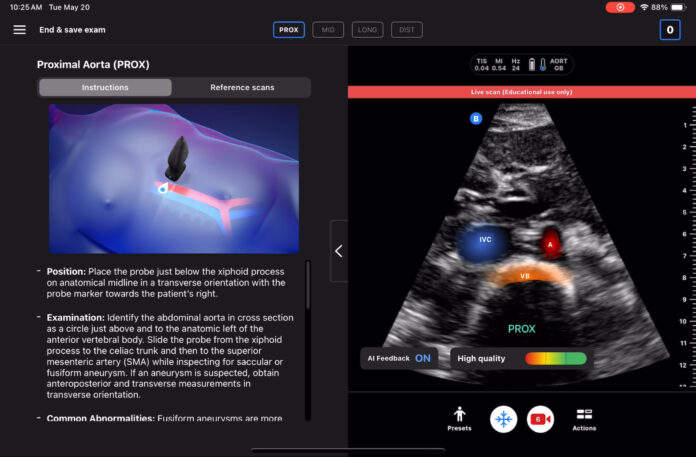BURLINGTON, Mass.– Butterfly Network, Inc. (NYSE: BFLY) has unveiled new research and training resources aimed at improving early detection of aortic stenosis and other aortic conditions through AI-assisted handheld ultrasound.
A study by Tufts Medical Center, published in European Heart Journal – Imaging Methods and Practice, found that a machine learning model fine-tuned for Butterfly’s iQ+ device achieved an AUROC score of 0.94 in distinguishing between no aortic stenosis and any degree of the condition. Researchers say this accuracy supports integrating handheld ultrasound into screening workflows, potentially expanding detection to primary care, urgent care, long-term care, and even home settings.
“This research shows a promising path forward where lower-level providers, not just cardiologists or trained sonographers, could screen for aortic stenosis,” said Dr. John Martin, study co-author and Butterfly’s Chief Medical Officer Emeritus.
Aortic stenosis affects more than 13% of Americans over age 75, with many cases undiagnosed until advanced stages. Early detection is linked to improved patient outcomes and reduced healthcare costs.
Alongside the research findings, Butterfly introduced an Aorta Exam Protocol in its Butterfly ScanLab education app. The module, included with every Butterfly membership, offers animations, anatomical labeling, and quality indicators to train users in scanning the abdominal aorta, aiding in the detection of abdominal aortic aneurysms and dissections.
“Early detection saves lives, but access to imaging remains a major barrier,” said Joseph DeVivo, Butterfly’s president, CEO, and chairman. “With AI and education working hand in hand, we’re empowering more providers to deliver proactive care in places that were never possible before.”


